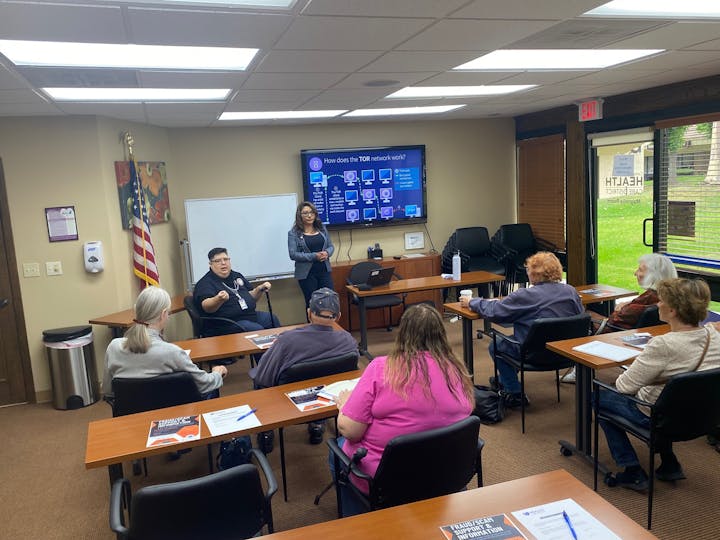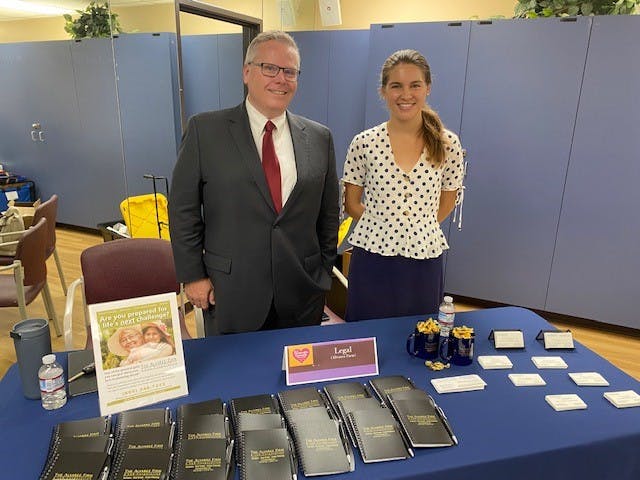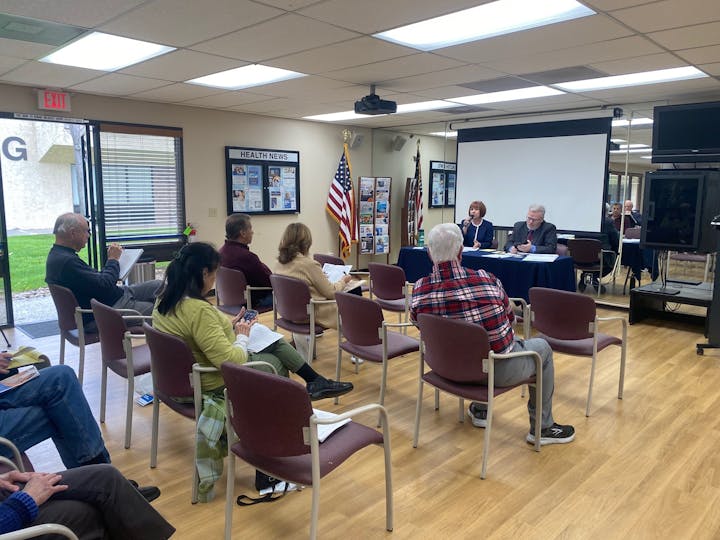Fraud/Scam Support & Information Coaching available

Anyone can become a target of a scam. In 2022, the FBI received reports totaling more than $207 billion in financial losses from victims, But those numbers are likely much higher as many people don’t report being victims of fraud, and often feel embarrassed and ashamed to tell their families, report it to the FBI or share their stories.
There always will be criminal minds at work, so it's important to become armed with knowledge and girded with fortitude to resist the temptation to answer phone calls and emails. And perhaps plan on attending a one-on-one confidential session with Debbie Deem, retired FBI Victim Specialist with more than 40 years of working with crime victims. Her scam intervention sessions are held here, at the Camarillo Health Care District, the fourth Wednesday of the month. During these sessions, she will listen to your story, answer questions, and focus on tactics used by fraudsters.
So, what can be done to proactively prevent fraudsters from overwhelming you? A lot of criminals can be stopped by not responding to solicitations. “Don’t answer your telephone,” Debbie says. “Let it ring to voicemail and then ONLY call people back who you know.” She also says if you’re returning a call to a banking institution, credit card company, business or doctor’s office, don’t just hit “redial” on your phone. Look up the number on a past statement or bill, and return the call using that number. Phone numbers are notorious for seeming legitimate on caller ID, but numbers can be faked and when you “redial” it, you could be led to the fraudster.
Scam victims are commonly thought to be mostly older adults, but individuals in their teens to late 20s can also become targets in job scams, fake products, romance scams and cryptocurrency investment fraud. “Anyone can be a victim,” Debbie says. The list is long but please read though these and become aware:
· Charity frauds
· Medical weight loss scams
· Identity theft
· Tax return fraud
· Government, bank and business impersonators
· (AI) artificial intelligence and voice cloning. If think that’s your grandchild calling because they need bail money, think again…it could be voice cloning.
Most Common Scam
“Tech Support” scam in which you receive an unsolicited (you didn’t ask for any tech support) email stating that your computer has malware and needs updating. If you click on their instructions to “make your computer safe”, they can then download an application on your computer that can record your keystrokes which can then pirate or copy passwords that you may type in for banking, or it can allow them to take over your computer and access your personal accounts by “looking like you” to your computer.
- Unsolicited direct messages through social media, telephone calls and texts
- A solicitation or message with a sense of urgency and/or secrecy
- Requests for personal information such as personal identification numbers (PINs), Social Security numbers
- A threat or enticing offer
- A request or demand for an unusual type of payment such as gift cards, cryptocurrency, cash or money wire. (legitimate businesses do NOT ask for money in these ways)
After personally witnessing victims experience financial ruin, some even losing their homes, Debbie made a promise to do whatever she could to be the voice of victims and hold fraud perpetrators accountable.
In more than three decades, Debbie understands that saying victims have “fallen” for a scam or been “conned” or “duped” isn’t exactly the right story or the right description. Rather, “They have been manipulated by sophisticated criminal enterprises,” she says. “These criminal enterprises target people to steal their money, oftentimes their retirement, sometimes their homes and always their sense of security.” With the assurance of no judgment, Debbie is prepared to listen, educate and provide resources.
What you can expect from an appointment with Debbie
· Referrals to agencies and organizations that can help;
· Information and handouts to help you understand various types of fraud and scams, how they work and how to protect yourself; and
· Emotional support with no judgment, blame or shame.
To make an individual appointment, call 805-388-1952, or see the Walk-In schedule to access resources.
National Elder Fraud Hotline: 833-372-8311
Ventura County Adult Protective Services: 805-654-3200
Ventura County Area Agency on Aging: 805-477-7300
Identity Theft Center: 800-400-5530
Federal Trade Commission: www.reportfraud.ftc.gov
Federal Bureau of Investigation: www.ic3.gov
Cyber Crime Network Internet Fraud Help: www.fightcybercrime.org
Victim Support Group: https://www.aarp.org/money/scams-fraud/voa-rest-program/
Top 5 Scams AARP warns to watch out for in 2024
1. Check cooking scam: Thieves steal your paper checks from the mail, alter them and cash them for higher amounts. Adice: Use a safter payment method such as a credit card or pay electronically through your bank.
2. Voiceprint scams: Thieves capture a recording of your voice and use it to impersonate you. Advice: Don’t answer the phone. Let it go to voicemail.
3. Delayed-action sweepstakes scam: Fraudsters ask for your personal information, such as Social Security number and banking information, under the guise it’s for a sweepstakes payout and over time they write checks on your bank account and obtain credit cards and lines of credit in your name. Advice: Never give out personal information.
4. Virtual celebrity scam: Someone pretends to be a celebrity or celebrity’s assistant trying to connect with you, and over time asks you for a loan. Advice: Be skeptical about any celebrity befriending you.
5. Multi-stage grandparent scam: People pose as your grandchildren in need of financial help related to an emergency and then provide a “case number.” Someone posing as a defense attorney or prosecutor calls you, asks for the “case number” and a courier is sent to pick up the money. Advice: Call or text your real grandchild to see if they are actually in need of help.
Fraud/Scam Support & Information coaching
Meet with victim advocate Debbie Deem, retired victim specialist with the FBI and former coordinator of the Financial Abuse Specialist Team (FAST), part of the Ventura County District Attorney's Office, for one-on-one coaching on how to avoid being scammed by fraudsters and what to do if you have been. She will provide resources, support and information. One-on-one appointments are available at noon and 1 p.m., and walk-ins may be seen 2 to 3 p.m.
Topics may include:
- Romance imposters
- Lottery and sweepstakes
- Crypto - investments
- Fake grandparent or family emergency
- Government, bank or business imposters
Fourth Wednesday of each month I 12 p.m. and 1 p.m. I A I NC
Drop-in: Fourth Wednesday of the month at 2-3 p.m. (ending November 2024)
Call 805-388-1952.





